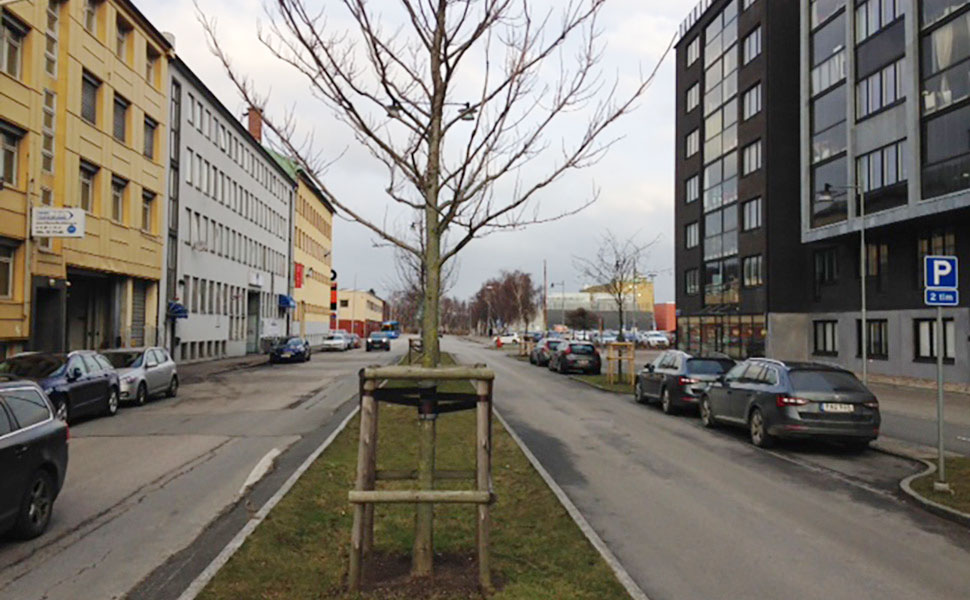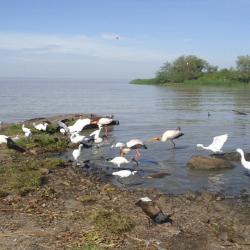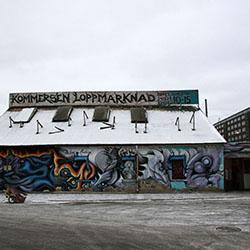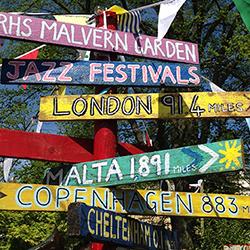
Culture and Heritage in Sustainable Urban Development
What roles does Culture and Cultural Heritage have in developing sustainable cities? That is the question the project Culture and Heritage in Sustainable Urban Development seeks to answer.
Sustainable development needs sustainable cities: a majority of the population lives there and they produce and consume the majority of the goods and services – including consumption and production of culture and cultural heritage - that ensure good living conditions for inhabitants.
Research question
This projects main objective and research question is addressing the role of culture and cultural heritage in sustainable city development by identifying, conceptualising and put into (future) practice sustainable mechanisms for the preservation and development of the urban cultural heritage and to better understand the role(s) of urban culture in city development.
This goal expands the contribution of culture and cultural heritage beyond the traditional conception as a provider of meaning and identity to communities. Urban culture and cultural heritage also provides material and intangible means of production and could therefore improve the quality of life both socially, economically and environmentally. This critical issue is often left out of the development agenda of cities.
Challenges
The project tackles three challenges related to Culture and Cultural Cultural Heritage.
The role(s) of culture and cultural heritage
A first challenge is to show that the city’s culture and cultural heritage play an important role(s) in ensuring social, environmental and economic development and their sustainability. There has been a progress made in the last decades on understanding the role(s) of culture and cultural heritage in cities as a supplier of meaning and identity, belonging and care, central pillars of social interaction and stability. It is important to remember that the material heritage include more than monuments and archaeological sites. It includes a variety of culturally significant places including historic centres and towns, shopping and consumption areas, industrial areas and landscapes.
Decision-making processes
A second identified challenge is to integrate this broader approach into the public and private decision-making processes that shape the development of cities. As a result, this would bring a new approach into the contributions of culture and cultural heritage to sustainable city development.
New mechanisms
A third challenge, is that this cannot be done without the introduction of new mechanisms: institutions, rules and procedures for ”managing” culture and urban cultural heritage. A central dimension of these mechanisms are a just process of participation, production and preservation of culture and cultural heritage. This entails a process where multiple stakeholders and actors participate in identifying the role(s) of culture and cultural heritage in sustainable cities without discrimination and excluding effects.
Activities
The project will undertake the following activities:
• Conducting a minor pilot study to test and discuss the Culture Consequence Analysis (CCA) tool in local contexts and with local stakeholders in Klippan and Lindholmen, Gothenburg, Sweden. The pilot study will build on guidelines and practices developed within the project Urban Culture: Case Kommersen.
• Collaboration with the City of Gothenburg on the development of City’s culture program and in particular the development of the Culture Consequence Analysis (CCA) method for addressing Culture and Arts’ roles in sustainable city development (Göteborgs Stads kulturprogram, version 2.0). The program encompasses regional, national, local and global issues regarding the role of culture, cultural heritage and history of the city for the future. The CCA is part of Gothenburg city’s vision for Cultural Planning defined as city planning focusing on the city’s cultural resources and address questions whether and how these can contribute to city development.
• Developing research applications for the future development of the project.
Blog Posts
Blog posts about the research and area of study are written by the project. Find them here: (in Swedish)
KONSTNÄRER ÖKAR OMRÅDENS VÄRDEN – MEN SEN DÅ? av Ylva Berglund, 18 maj 2017
PLATSAR INTE KULTUR I BLANDSTADEN? av Ylva Berglund, 21 februari 2017
VI STANNAR INTE FÖR ATT DANSA av Ylva Berglund, 17 november 2016
MASKULIN FIKA I HÖGSBO av Ylva Berglund, 1 november 2016
VILSE I GULLBERGSVASS av Ylva Berglund, 24 oktober 2016
Files
-
Platsar kulturen i den nya staden?Fria kulturutövares perspektiv på kulturens och kulturarvets roll i den hållbara staden.







